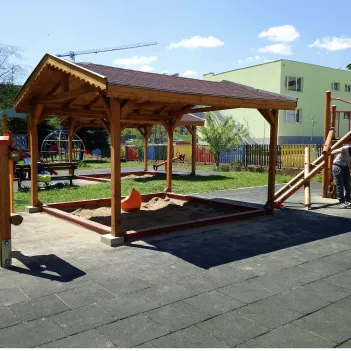FLEdge
A Novel Hierarchical Edge Based Flexibility Management Ecosystem at Both Building and City Level

- Category
- Project
- Call
- DUT Call 2022
- Duration
- –
- Project coordinator
- International Hellenic University
The FLEdge project addresses the urgent challenge of optimizing energy flexibility and resource management in urban environments to facilitate the transition to sustainable, energy-efficient cities. Specifically, it focuses on developing a hierarchical edge-based ecosystem that enables real-time energy management at building, district, and city levels. The key research questions include how to effectively model and manage energy flexibility, optimize energy resources, and engage citizens in energy consumption behaviors. Additionally, the project investigates integrating digital twins, advanced analytics, and edge computing to enhance energy efficiency, support renewable integration, and promote responsible involvement of stakeholders. By solving these challenges, FLEdge aims to contribute to the broader goal of smart, sustainable urban energy systems that are resilient, user-centric, and capable of supporting future urban transition pathways.
FLEdge proposes to develop and implement a hierarchical, decentralized energy management system centered around innovative Edge-Energy Management (EEM) devices that operate at building, neighborhood, district, and city levels. The project will design and integrate smart algorithms for energy forecasting, load disaggregation, and demand response, utilizing digital twins and AI-driven analytics. Work will be conducted across multiple pilot sites, primarily in Sofia, where the integrated solutions will be installed, tested, and validated in real-life conditions. The actions include defining stakeholder requirements, developing the reference architecture, testing system integration, deploying pilot projects, and engaging stakeholders through participatory activities. These activities will demonstrate how energy flexibility can be optimized automatically and locally, reducing costs, enhancing renewable use, and improving grid stability—thus directly addressing urban energy challenges and supporting a transition to sustainable urban ecosystems.
The FLEdge project is expected to produce significant scientific, technological, and societal impacts. Scientifically, it will advance methods for integrating Digital Twins, AI, and energy flexibility strategies, contributing new knowledge to smart energy management in urban environments. Technologically, it will deliver innovative hierarchical, decentralized energy management systems, including EEM devices, digital twins, and AI-enabled decision support tools that can be replicated and adapted to different urban contexts. Societally, the project aims to enhance energy efficiency, increase renewable energy utilization, and improve residents’ comfort and well-being. It will also promote public engagement, raise awareness on energy demands, and facilitate new business models, ultimately supporting cities' transition toward smart, sustainable, and resilient urban ecosystems, with benefits including reduced energy costs, increased grid stability, and reduced carbon emissions.
Bulgaria
Estonia
Greece
Romania
Sweden
Kinnon Legal Services S.R.L., Respace Ab, Sofia University St Kliment Ohridski, Tallinna Tehnikaülikool
Chalmers Tekniska Hogskola AB, Doing Good Göteborg Ekonomisk Förening, Elering As, Energomonitor Bulgaria Ltd, Stolichna Obshtina, Thermo-Logic Ab
Contact
Stelios Krinidis
krinidis@mst.duth.gr